 W
WBenedict Arnold was an American military officer who served during the Revolutionary War. He fought with distinction for the American Continental Army, rising to the rank of major general, before defecting to the British side of the conflict in 1780. General George Washington had given him his fullest trust and placed him in command of the West Point, New York. Arnold planned to surrender the fort to British forces, but the plot was discovered in September 1780 and he fled to the British lines. Arnold received a commission as a brigadier general in the British Army, commanding the American Legion in the later part of the conflict. Arnold's name quickly became a byword in the United States for treason and betrayal because he led the British army in battle against the very men whom he had once commanded.
 W
WJohn Russell Bartlett was an American historian and linguist.
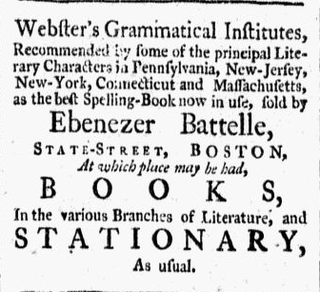 W
WEbenezer Battelle (1754–1815) was an American Revolutionary War veteran, a bookseller in Boston, Massachusetts, and a settler of Marietta, Ohio, in the late 18th century.
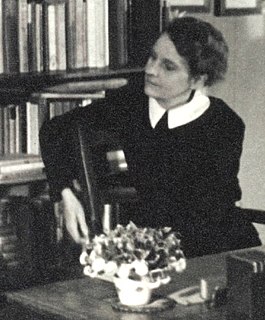 W
WSylvia Beach, born Nancy Woodbridge Beach, was an American-born bookseller and publisher who lived most of her life in Paris, where she was one of the leading expatriate figures between World War I and II.
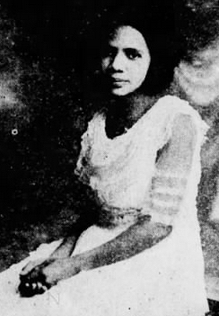 W
WLodie Maurine Biggs, later Lodie Biggs Moore, was an American bacteriologist, bookseller, and civil rights activist.
 W
WGeorge Brumder was a German-American newspaper publisher and businessman in Milwaukee, Wisconsin. Born in Breuschwickersheim, Bas-Rhin, France., Brumder emigrated to the United States, settling in Milwaukee, where he produced several publications that served the city's German-American community.
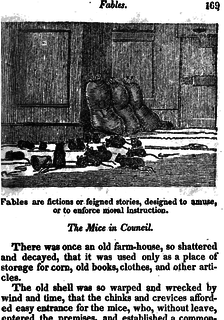 W
WJacob Abbot Cummings (1773–1820) was a bookseller, publisher, schoolteacher and author in Boston, Massachusetts, in the early 19th-century.
 W
WLorenzo Da Ponte was an Italian, later American opera librettist, poet and Roman Catholic priest. He wrote the libretti for 28 operas by 11 composers, including three of Mozart's most celebrated operas, The Marriage of Figaro (1786), Don Giovanni (1787), and Così fan tutte (1790).
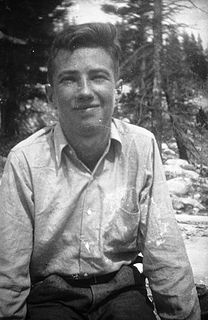 W
WGlen Dawson was an American rock climber, mountaineer, antiquarian bookseller, publisher and environmentalist.
 W
WEphraim Deinard (1846–1930) was one of the greatest Hebrew "bookmen" of all time. He was a bookseller, bibliographer, publicist, polemicist, historian, memoirist, author, editor, and publisher, all rolled into one.
 W
WEdward Eastman was known as an American merchant and politician from Oshkosh, Wisconsin, where he had moved as a young man from Vermont. He was active in civic and territorial affairs, and known as a Democrat and Free Soiler. In 1847 he was one of a partnership approved by the territorial legislature to build the first bridge across the Fox River in Oshkosh.
 W
WLawrence Monsanto Ferlinghetti is an American poet, painter, social activist, and the co-founder of City Lights Booksellers & Publishers. He is the author of poetry, translations, fiction, theatre, art criticism, and film narration. Ferlinghetti is best known for his first collection of poems, A Coney Island of the Mind (1958), which has been translated into nine languages, with sales of more than one million copies. Ferlinghetti turned 100 in March 2019, leading the city of San Francisco to proclaim his birthday, March 24, "Lawrence Ferlinghetti Day".
 W
WCarlos Goez founded the original Pomander Book Shop,, "a rather unprepossessing, Dickensian storefront" The "Pomander," as it was known, was located at 252 West 95th Street, on Manhattan's Upper West Side, next to the Thalia, one of New York's first repertory movie theatres. Hidden down the same street was the historic architectural gem Pomander Walk where Goez resided for many years.
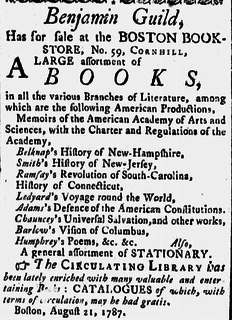 W
WBenjamin Guild (1749-1792) was a bookseller in Boston, Massachusetts, in the late 18th century. He ran the "Boston Book Store" and a circulating subscription library in the 1780s and 1790s at no.59 Cornhill, "first door south of the Old-Brick Meeting-House."
 W
WThomas Hancock was a merchant in colonial Boston. Born to Reverend John Hancock and Elizabeth (Clark), he got his start in the book trade and expanded into importing and exporting throughout the Thirteen Colonies. He was also a smuggler, evading the Navigation Acts by trading with the Dutch Republic, which was forbidden. Thanks to lucrative contracts with the Colonial government during King George's War and the Seven Years' War, Hancock became one of Boston's wealthiest men. When his health failed, he passed his business and fortune to his nephew, future Founding Father John Hancock, whom he had raised since John was eight.
 W
WHenry Hoyt was a publisher and bookseller at No. 9 Cornhill, Boston, Massachusetts, United States, active from 1850 until 1876. He specialized in juvenile and popular religious works, such as the Sunday School Journal and the Child's Companion and Youth's Friend. The firm was eventually succeeded at the same location by Ira Bradley & Co., which became Bradley & Woodruff.
 W
WWilliam T. Johnson was a free African American barber of biracial parentage, who lived in Natchez, Mississippi.
 W
WKenneth Karmiole is an American bookseller and philanthropist. He is President of Kenneth Karmiole, Bookseller, Inc., located in Santa Monica, California, established in 1976, an antiquarian bookselling firm specializing in early printed books and manuscripts.
 W
WIsaac Knapp was an abolitionist printer, publisher, and bookseller in Boston, Massachusetts. He is remembered primarily for his collaboration with William Lloyd Garrison in printing and publishing The Liberator newspaper.
 W
WHenry Knox was a military officer of the Continental Army and later the United States Army, who also served as the first United States Secretary of War from 1789 to 1794.
 W
WFrederic Gershom Melcher was an American publisher, bookseller, editor, and a major contributor to the library science field and book industry. He is particularly known for his contributions to the children's book genre, including the Newbery Medal and Caldecott Medal. Melcher was named as one of the most important 100 leaders in the library science field in the 20th century in an American Libraries article and has been described as "the greatest all-round bookman in the English-speaking world".
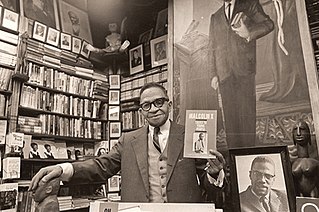 W
WLewis H. Michaux was a Harlem bookseller and civil rights activist. Between 1932 and 1974 he owned the African National Memorial Bookstore in Harlem, New York City, one of the most prominent African-American bookstores in the country.
 W
WEric Robert Papenfuse is an American businessman and politician who is currently serving as the 38th Mayor of Harrisburg, Pennsylvania. Papenfuse is the founder and co-owner with his wife of The Midtown Scholar Bookstore in Harrisburg, which they have owned since 2001.
 W
WAnn Patchett is an American author. She received the 2002 PEN/Faulkner Award and the Orange Prize for Fiction in the same year, for her novel Bel Canto. Patchett's other novels include The Patron Saint of Liars (1992), Taft (1994), The Magician's Assistant (1997), Run (2007), State of Wonder (2011), Commonwealth (2016), and The Dutch House (2019). The Dutch House was a finalist for the 2020 Pulitzer Prize for Fiction.
 W
WKathy L. Patrick is an author, hairdresser, founder of Pulpwood Queens Book Club, and owner of the Jefferson, Texas, hair salon/bookstore, Beauty and the Book. She was born and raised in Kansas.
 W
WEdwin D. Peacock was the owner of the Book Basement in Charleston with his longtime partner John Zeigler. He was also friends with Carson McCullers who used him as inspiration for a character in The Heart is a Lonely Hunter.
 W
WMoses Polock was a Jewish-American publisher and the first bookseller in the United States who dealt exclusively in rare books. At the time of his death, he was the oldest bibliophile in the country.
 W
WDavid Anton Randall was an American book dealer, librarian and bibliographic scholar. He was head of Scribner's rare book department from 1935 to 1956, librarian of the Lilly Library and Professor of Bibliography at Indiana University. Randall was responsible for the sale of two copies of the Gutenberg Bible. As a practitioner of bibliology with a bibliophiliac addiction, a raconteur of history of books, and an avid collector, he developed a keen appreciation for books as physical objects—including the tasks of collecting, cataloging, finding and preserving them.
 W
WLeonard S. Riggio is a retired American businessman and entrepreneur. He served as executive chairman of book store chain Barnes & Noble and was its largest shareholder from 1971 until the sale of the company to the hedge fund Elliott Advisors in 2019. Under his leadership the company expanded significantly from a single retail location on 105 Fifth Avenue, New York to a nationwide chain with 600+ stores, which it did with acquisitions and mergers of competing chain stores.
 W
WAbraham Simon Wolf Rosenbach was an American collector, scholar, and seller of rare books and manuscripts. In London, where he frequently attended the auctions at Sotheby's, he was known as "The Terror of the Auction Room." In Paris, he was called “Le Napoléon des Livres”, which translates to “The Napoleon of Books." Many others referred to him as “Dr. R.”, a “Robber Baron” and “the Greatest Bookdealer in the World”.
 W
WCharles Carroll Soule was an American bookman with a side specialty in the architecture of libraries. Born in Boston to Richard Soule, Jr. (1812–1877) and Harriet Winsor (1816–1905) he attended the Boston Latin School and Harvard College (1862), and fought in the Civil War. After the war he engaged in public speaking about post-slavery reconciliation in Orangeburg County, South Carolina.
 W
WIda Frances Stelov, better known as Frances Steloff or Fanny, was the founder of the Gotham Book Mart in New York City, a center for avant-garde literature and literati from 1920 until it closed in 2007.
 W
WIrvin Ungar is an American former pulpit rabbi and antiquarian bookseller, considered the foremost expert on the artist Arthur Szyk. Ungar is credited as “the man behind the Szyk renaissance” who pulled Szyk “out of obscurity” through scholarship, exhibitions, and publications spanning nearly three decades.
 W
WGabriel Wells was a noted bookseller, historian and author. He was one of the most important antiquarian booksellers in America and Britain in the first half of the twentieth century. He was president of the Antiquarian Booksellers' Association in 1930.
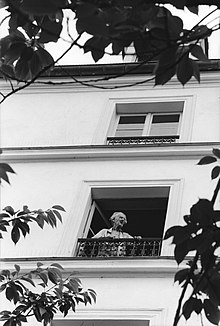 W
WGeorge Whitman was the proprietor of Shakespeare and Company, the celebrated English-language bookstore on Paris's Left Bank. He was a contemporary of writers such as Allen Ginsberg, Anaïs Nin, and Lawrence Durrell, as well as a lifelong friend of the poet Lawrence Ferlinghetti.
 W
WHalsey William Wilson was the creator of the Readers' Guide, the Cumulative Book Index, and the Book Review Digest and founder of the H. W. Wilson Company, a publisher. In 1999, American Libraries named him one of the "100 Most Important Leaders We Had in the 20th Century".
 W
WWilliam Wilson was a Scottish-American poet, bookseller and publisher.
 W
WJohn Asbury Zeigler, Jr. was the owner of the Book Basement in Charleston with his longtime partner Edwin D. Peacock.